News

As summer camp season wraps up and a new school year begins, this “Research Made Possible” podcast shares how University of Kentucky researchers across campus are targeting science, technology, engineering and math (STEM) education.

The University of Kentucky College of Medicine is pleased to announce that Luke Bradley, PhD, has accepted the position of acting chair of the department of neuroscience, effective Aug. 1.
Dr. Bradley, a University of Kentucky Chellgren Endowed Professor, has served in the College of Medicine for nearly 15 years researching the discovery and development of peptide- and protein-based platforms for biotherapeutics for neurodegenerative diseases. He also touts more than 20 years of STEM education experience.
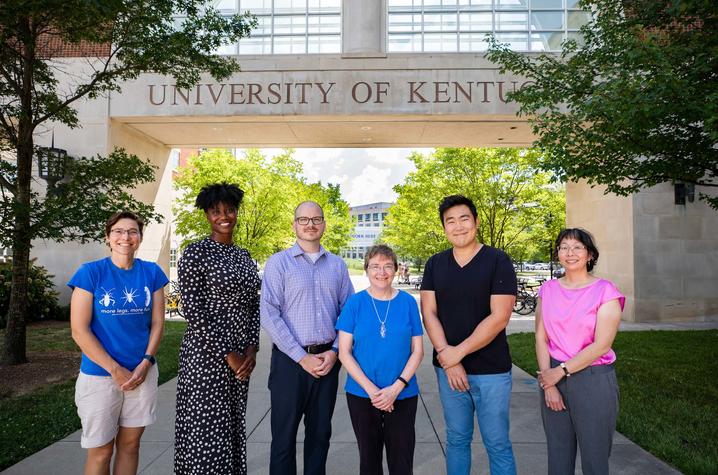
LEXINGTON, Ky. (June 30, 2021) — The University of Kentucky’s Neuroscience Research Priority Area (NRPA) supports a "collaborative matrix," bringing together diverse groups of investigators, trainees and research groups from nine different colleges across the University of Kentucky campus.
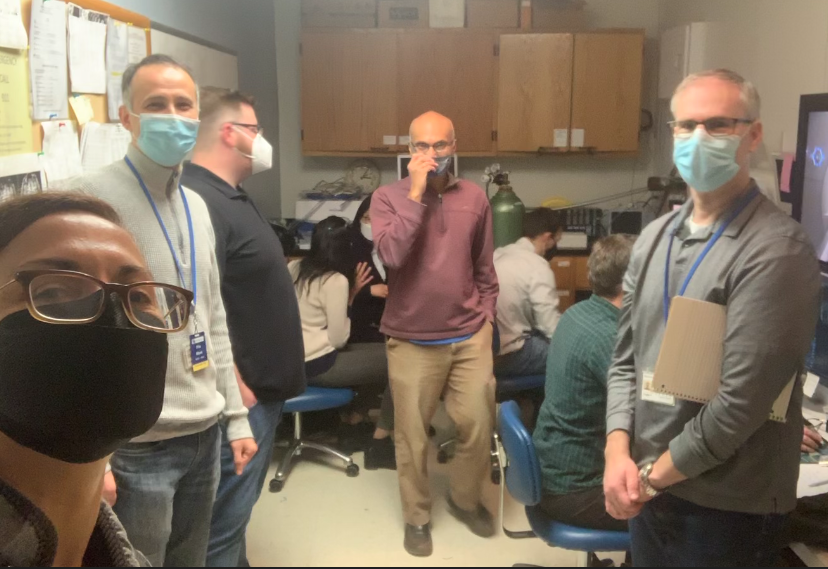
Meriem Bensalem-Owen, MD, and Brian Gold, PhD, might not have ever had the chance to work on projects together. Dr. Bensalem-Owen is a physician who spends much of her time at the patients’ bedside, reviewing video-EEG monitoring studies, or in clinic treating patients with epilepsy, and Dr. Gold is a researcher who studies age-related brain and cognitive changes in the lab.
But thanks to the University of Kentucky College of Medicine’s Alliance Research Initiative, they have joined forces to better localize, and ultimately treat, epileptic seizures.
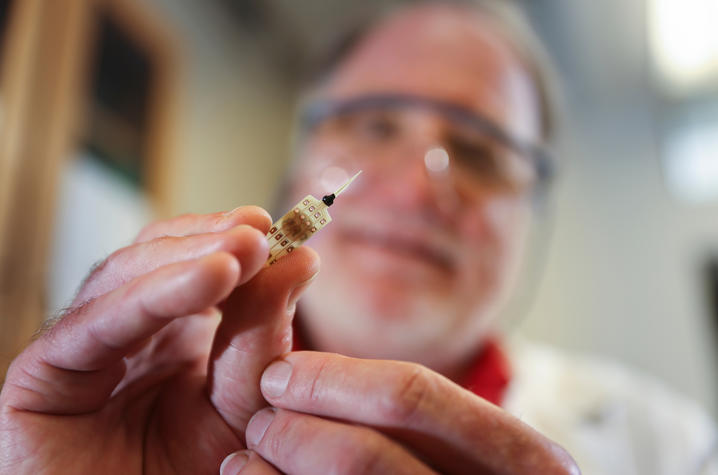
LEXINGTON, Ky. (June 4, 2021) — University of Kentucky Department of Neuroscience Professor Greg Gerhardt, Ph.D., hypothesizes that the balance of glutamate and gamma-aminobutyric acid (GABA) — two main neurotransmitters in the brain — contributes to Alzheimer’s disease and age-related declines in cognition and memory.
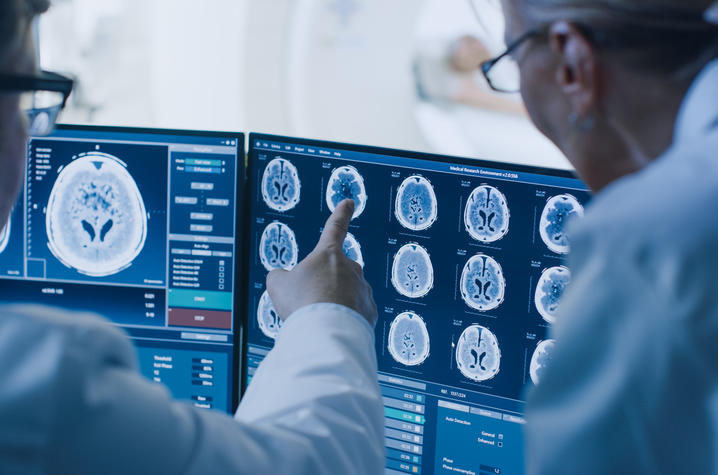
LEXINGTON, Ky. (May 5, 2021) — Collaborative research between the University of Kentucky and the University of Southern California (USC) suggests that a noninvasive neuroimaging technique may index early-stage blood-brain barrier (BBB) dysfunction associated with small vessel disease (SVD). Cerebral SVD is the most common cause of vascular cognitive impairment, with a significant proportion of cases going on to develop dementia.
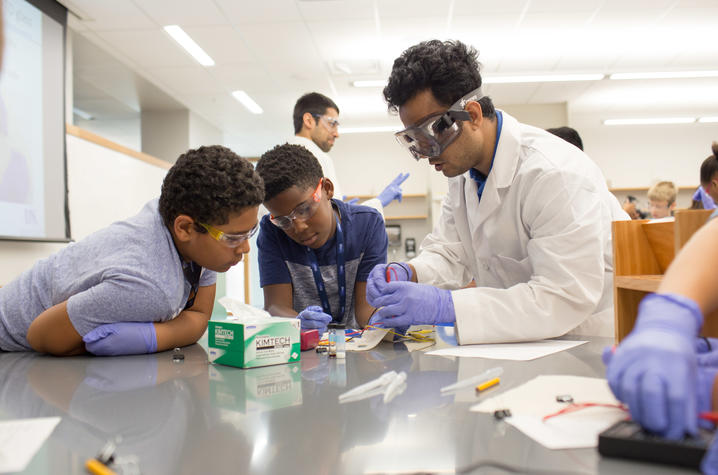
LEXINGTON, Ky. (April 1, 2021) – The STEM Through Authentic Research and Training (START) program at the University of Kentucky is creating a unique pipeline to increase science, technology, engineering and math (STEM) literacy and promote STEM careers for traditionally underrepresented populations (people of color, individuals with disabilities, students from free or reduced lunch schools), first-generation college students, and girls and women in STEM.
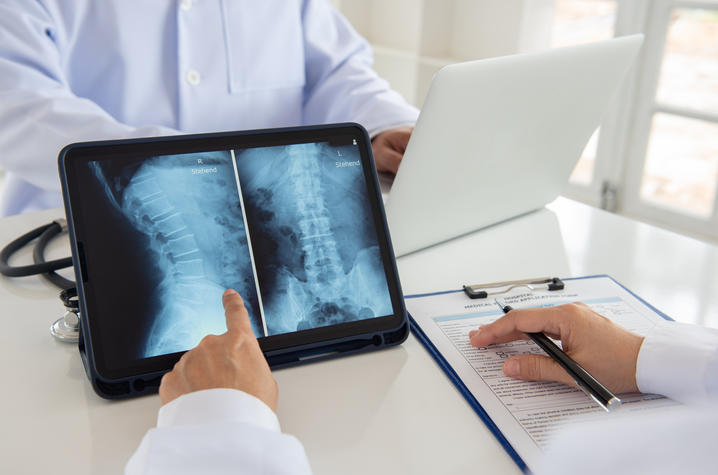
LEXINGTON, Ky. (Feb. 25, 2021) — Spinal cord injuries (SCIs) are not only life-threatening at the time of the event, but they can also lead to secondary complications and loss of function in sensory and motor systems. Researchers at the University of Kentucky recently published a unique study focusing on SCIs in eNeuro.
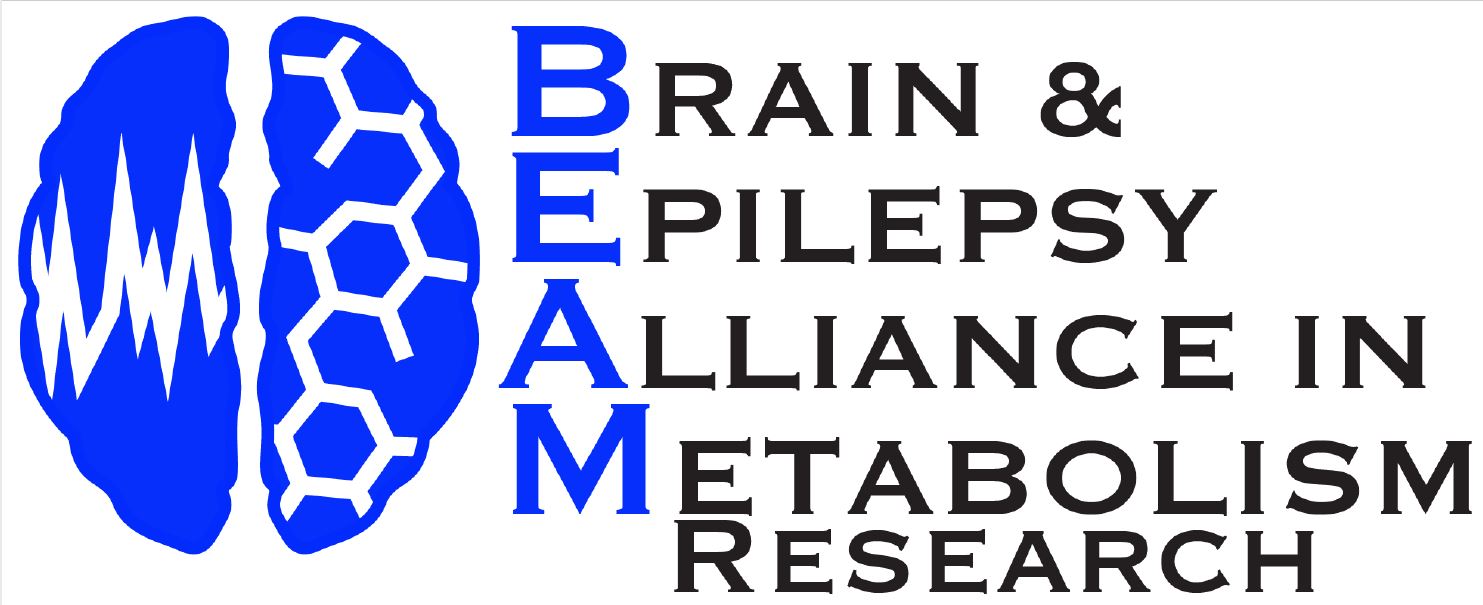
Brain metabolism is the process by which the brain converts nutrients into energy and small molecule signals. When there are breakdowns in brain metabolism, this can lead to serious neurological diseases including epilepsy, Alzheimer’s disease, Parkinson’s disease, and traumatic brain injury. These breakdowns even have been linked to diabetes.

Marilyn Duncan, PhD, a driven researcher and well-regarded professor in the department of neuroscience, has been elected to serve on the University Senate Council, the executive body of the University Senate.
Dr. Duncan is serving a third term on the University Senate. During her tenure she has been part of the Advisory Committee for Prior Service, the Academic Programs Committee, the Academic Area Committee for Promotion and Tenure in the Biological Sciences, and the Library Committee.
Her term on the Senate Council will run from Jan. 1, 2021 to Dec. 31, 2023.

Daniel Lee, PhD, is an associate professor at the University of Kentucky College of Medicine Department of Neuroscience and a researcher at the UK Sanders-Brown Center on Aging, an internationally recognized Alzheimer’s Disease Research Center. He joined the UK College of Medicine in August 2019. He is also a member of the Faculty of Color Network and currently serves as co-director for the Research Education Component (REC) of the UK-ADRC.

Veterans Day is a time to recognize individuals who have made the honorable decision to protect our country's freedom through military service. Below, we are honoring four of our of our very own faculty members and learners who have served our country, are serving our country, or are committed to serving our country in the most selfless of ways - through the military and in health care.

The Spinal Cord and Brain Injury Research Center (SCoBIRC), in collaboration with the University of Kentucky College of Arts and Sciences, has selected five undergraduate students for the inaugural African American Research Training Scholars (AARTS) program.
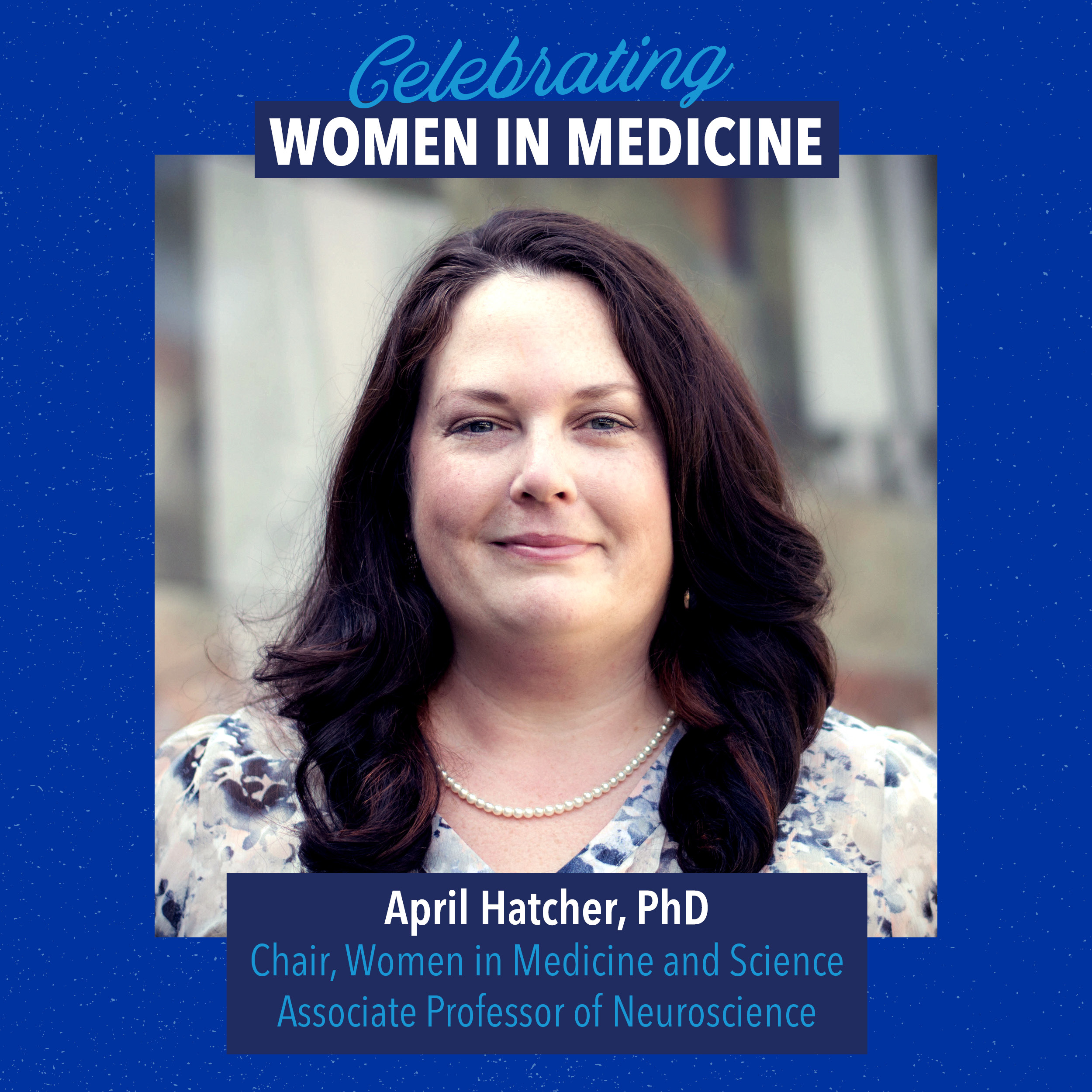
April Hatcher, PhD, is an associate professor in the University of Kentucky College of Medicine Department of Neuroscience and was recently named chair of Women in Medicine and Science (WIMS), an organization facilitating networking and mentorship opportunities to support career advancement for women.
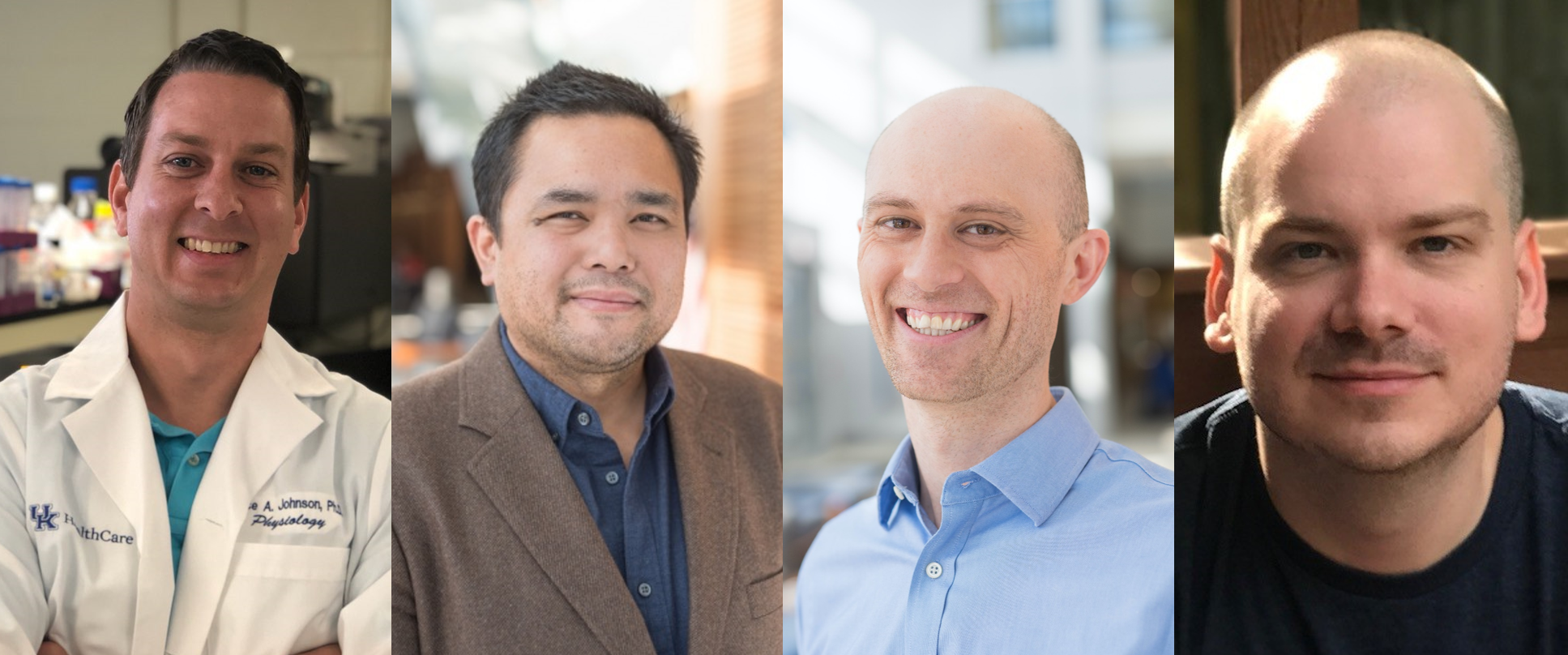
Mere days after the COVID-19 pandemic forced limitations on research in laboratories, a team of neuroscience-related researchers from the UK College of Medicine figured out a way to keep the important discussions going, virtually.
The team’s solution: developing an online seminar series discussing a wide variety of topics in neuroscience, which is one of the six research priority areas in the UK Vice President for Research’s Research Priorities Initiative.
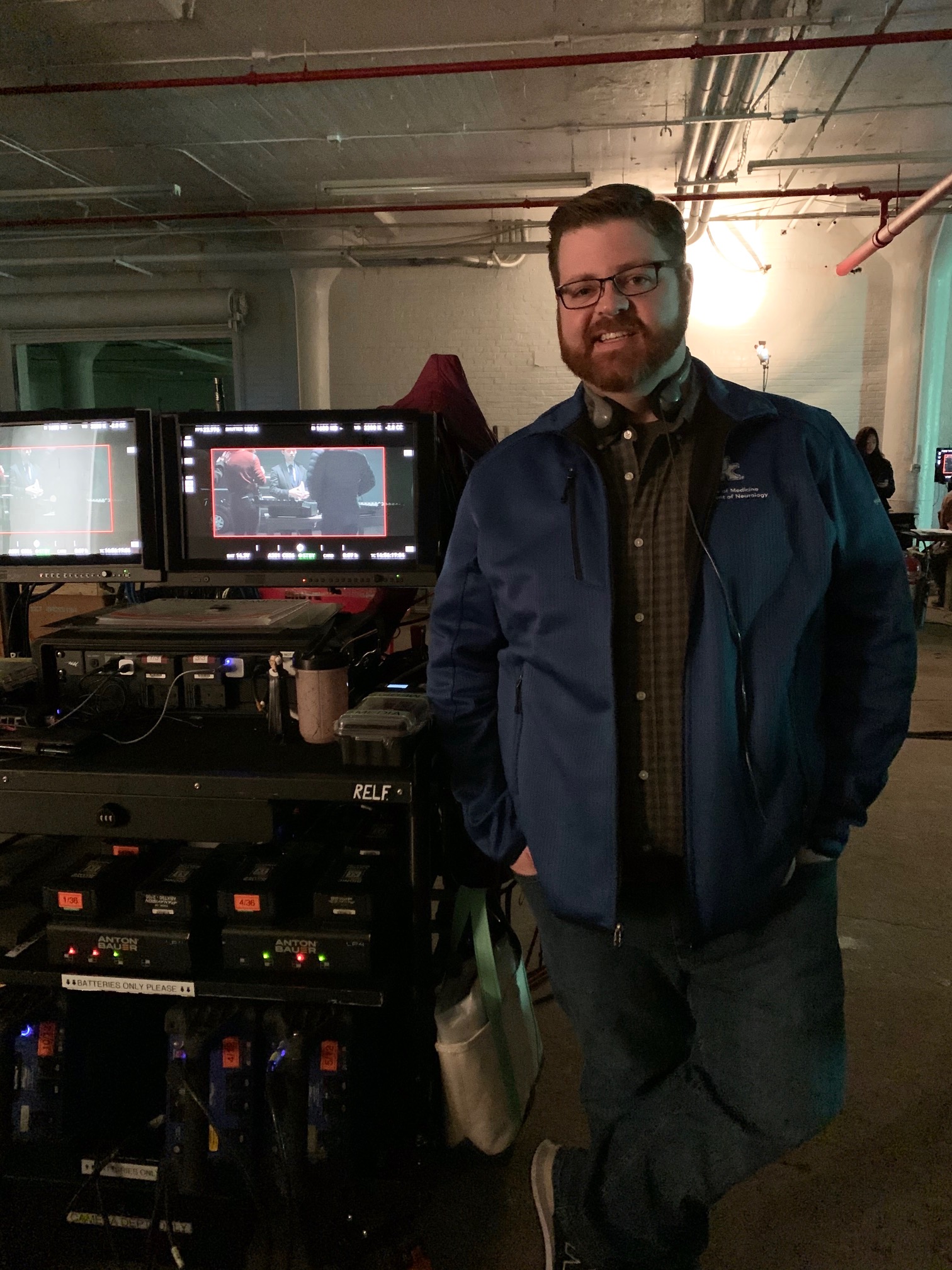
Timothy Ainger, PhD, had just completed a 10-hour clinic day when he pulled out his cellphone to check his messages. There were 74 in total, which was pretty typical because he was involved in group chats with his pals, as well as a Fantasy Football league. However, amid those messages were 14 notifications from his wife, Jan.
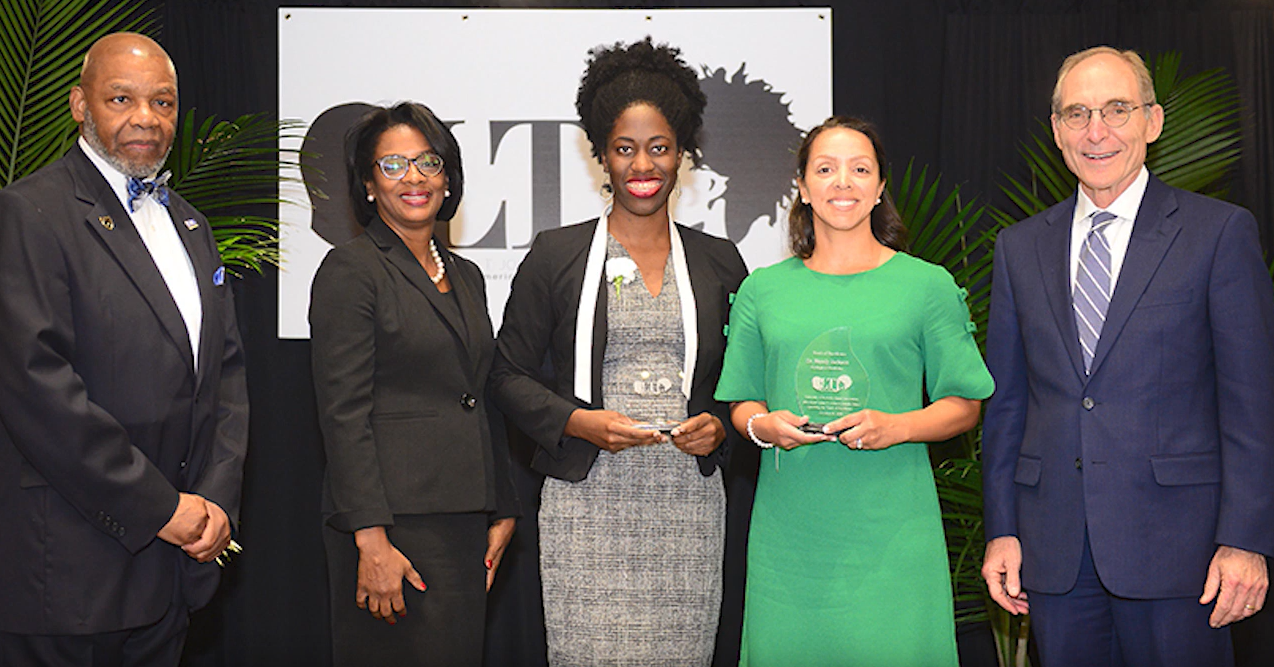
As a young student who was proficient in science, Dr. Eseosa Ighodaro, always saw herself pursuing a career in medicine. But it wasn’t until applying to medical school that she discovered there was another path she wanted to follow.

Luke H. Bradley, PhD, Chellgren Endowed Professor in the department of neuroscience, was recently selected by the Kentucky Council on Postsecondary Education as a member of its newly-established Faculty Advisory Network.
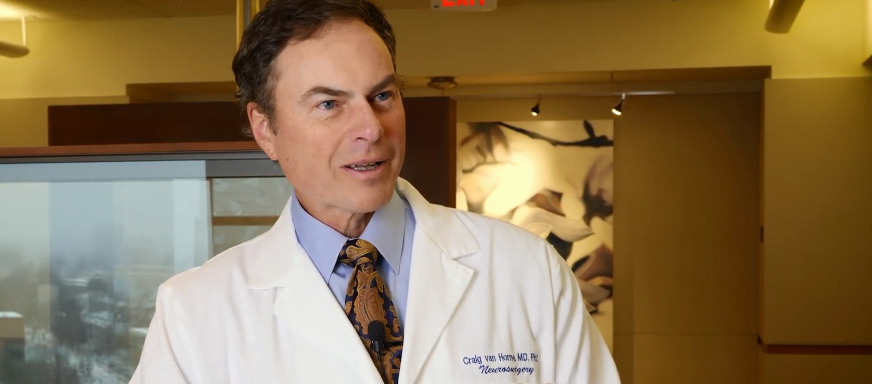
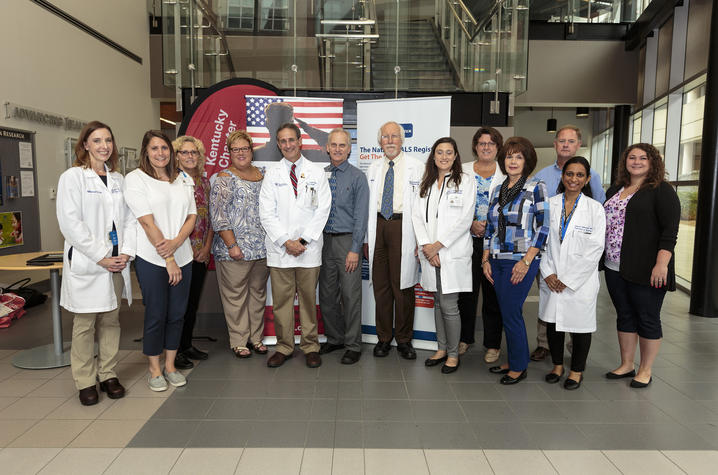
Everyday, approximately 15 people learn they have Amyotrophic Lateral Sclerosis. ALS is a progressive neurological disease that affects the nerve cells in the brain and the spinal cord, eventually stealing from its victims the ability to walk, dress, write, speak, swallow and breathe. Most ALS patients die within five years of diagnosis, and currently, there is no cure.